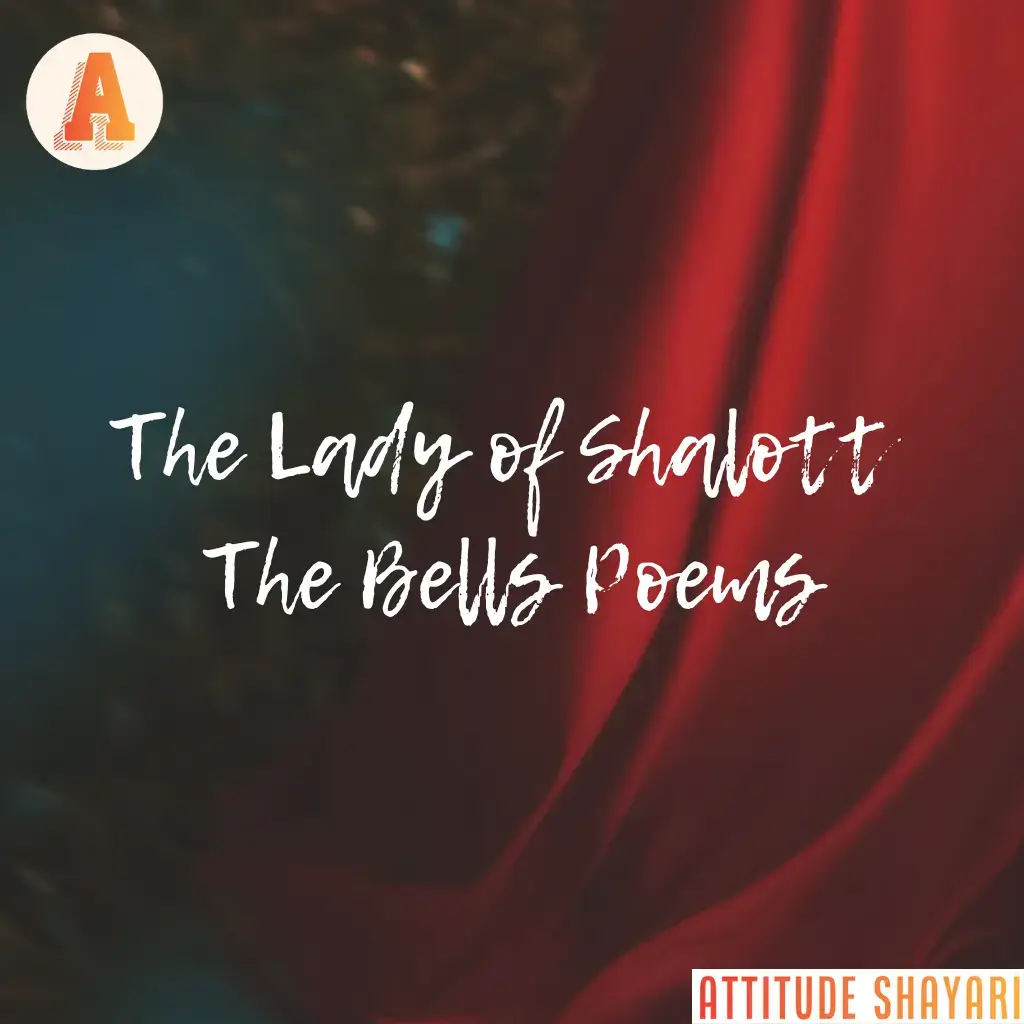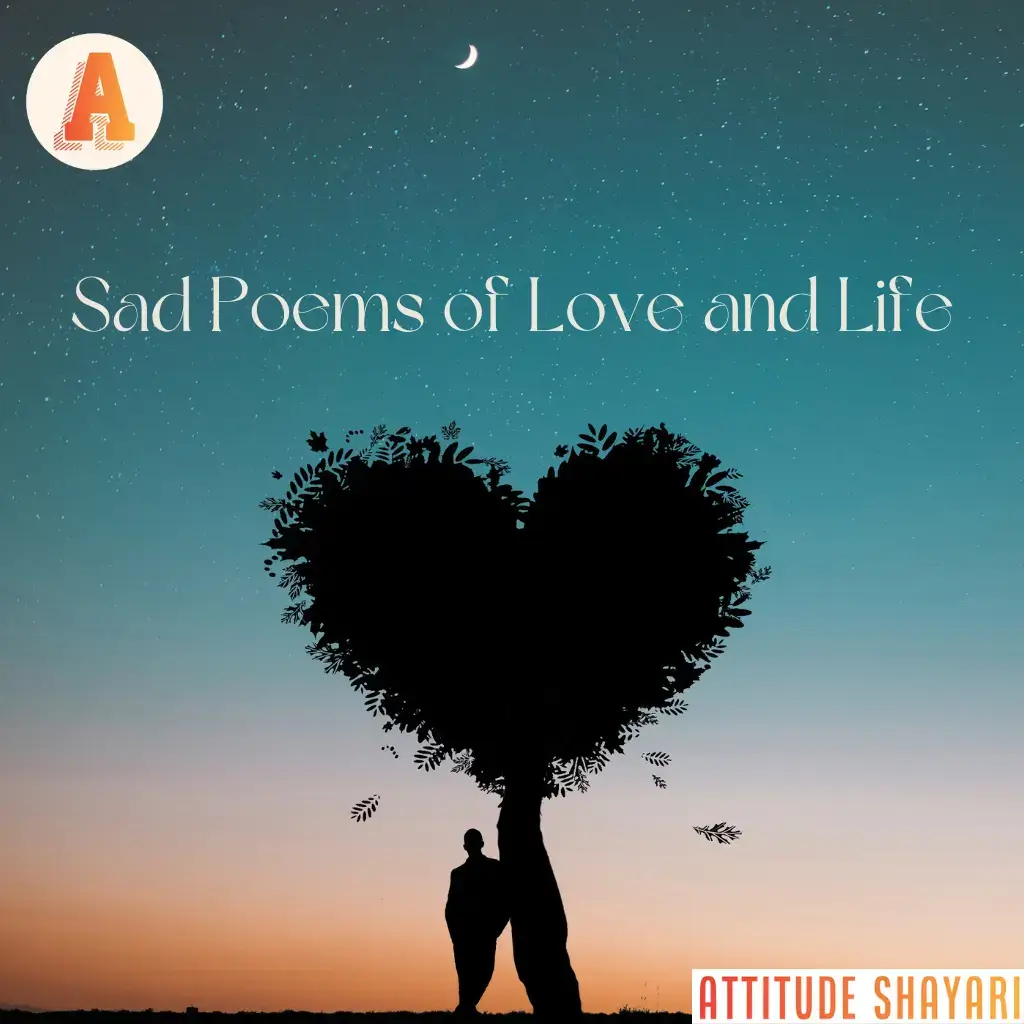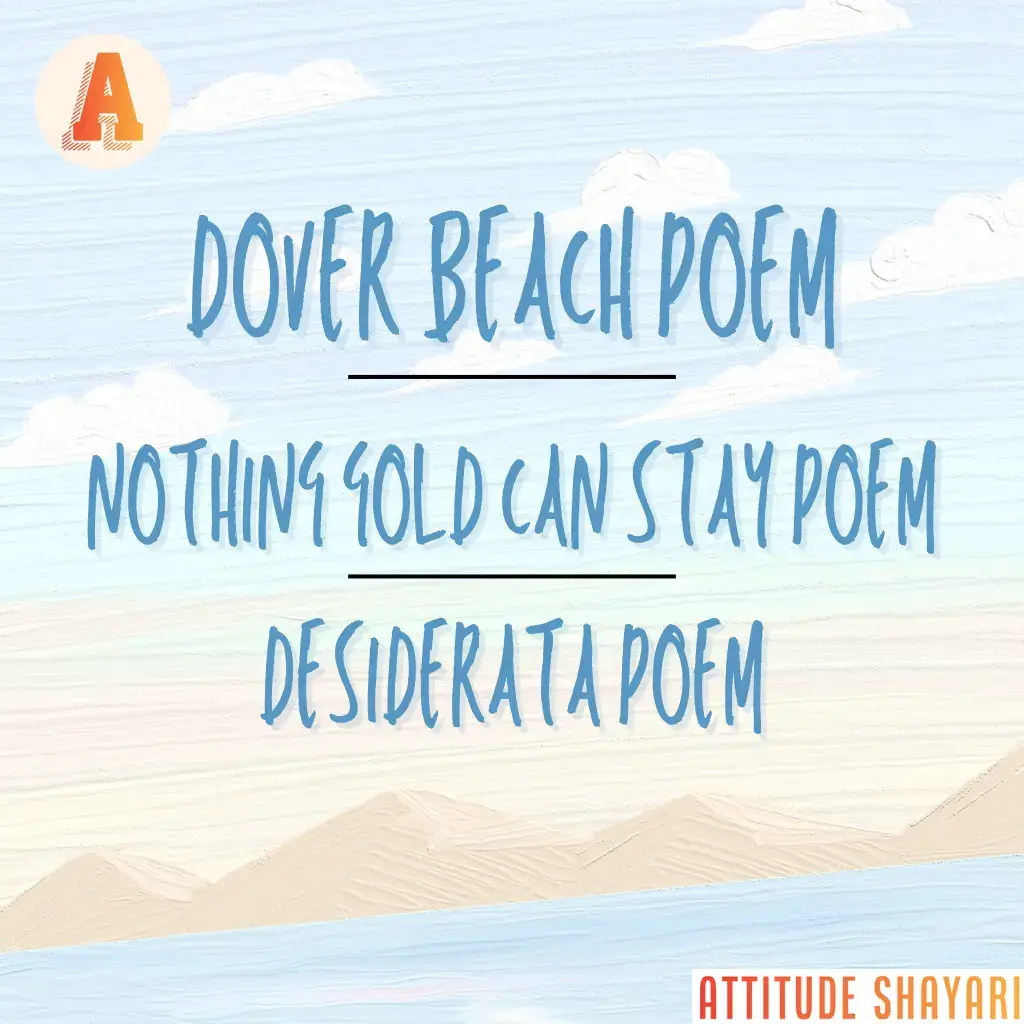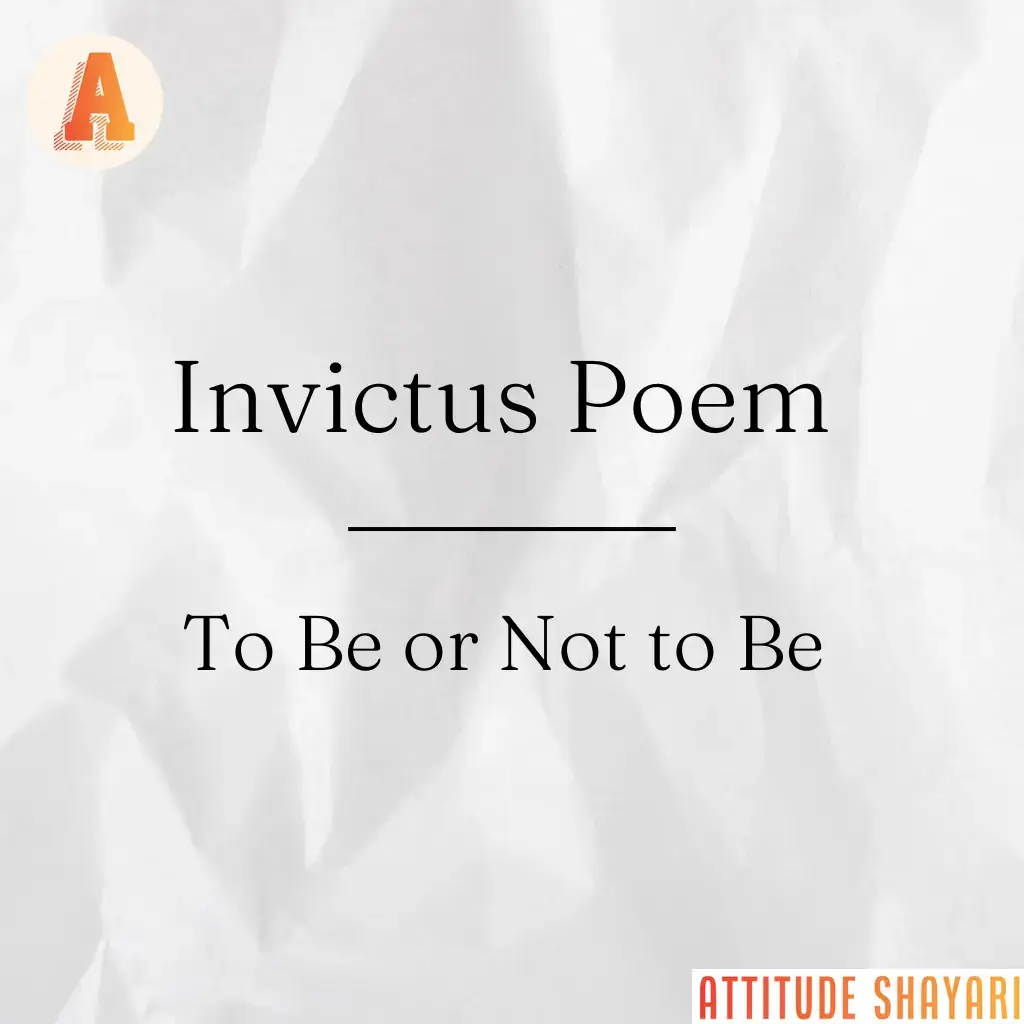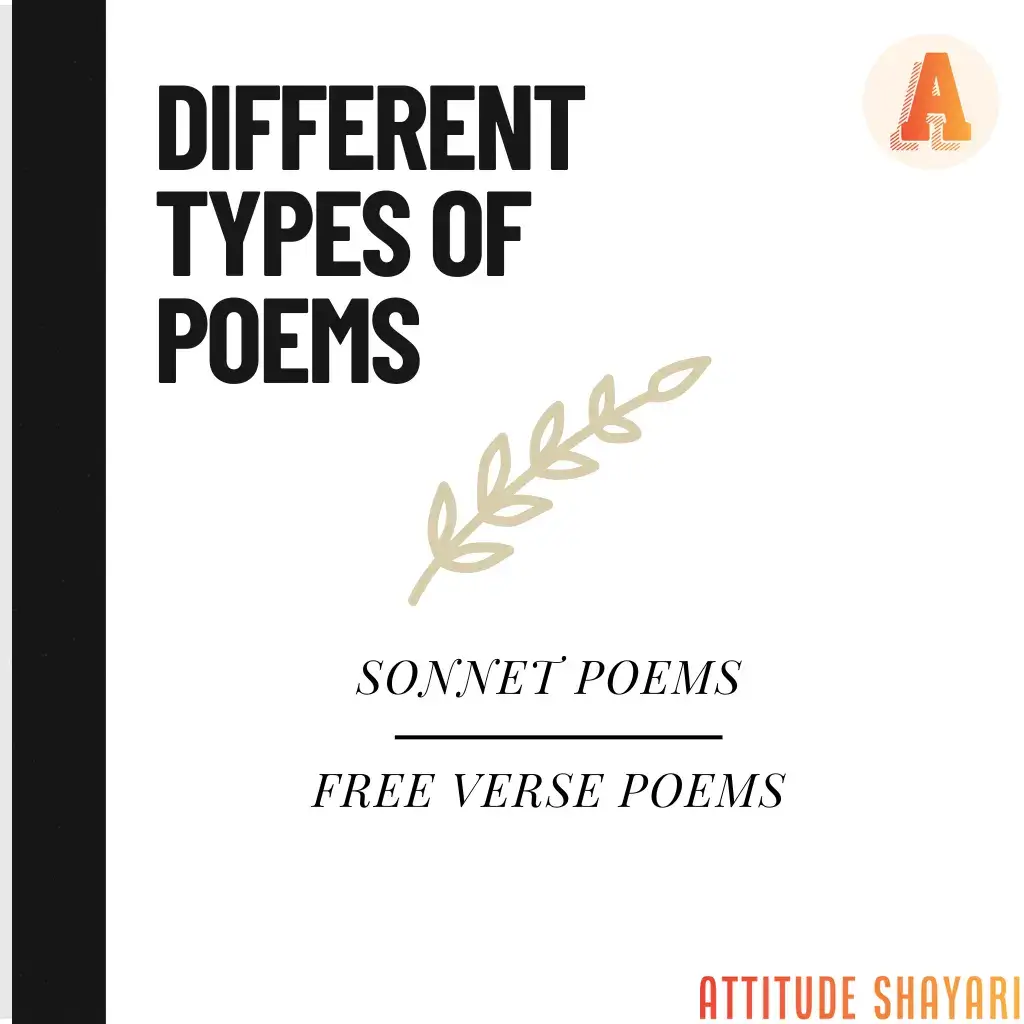
Understanding different types of poems can make the reading and even writing more enjoyable. Below you can find some important types you should know:
Sonnets: A sonnet is a 14-line poem with a specific rhyme pattern. The most famous sonnets are written by the great William Shakespeare, like Sonnet 18 (Shall I compare thee to a summer’s day?) and Sonnet 17. These beautiful poems often talk about love, beauty and the passage of time.
Free Verse: It is a type of poem that does not follow any strict rules for rhyme. It gives the poet the freedom to express their emotions, thoughts and feelings in a natural way. Since there is no structure in these poems, free verse can be about any topic and can take on many different forms.
These are the types of poems which offer many ways to express ideas and emotions. Whether you enjoy the structured beauty of a sonnet or the free-verse, these forms of poetry is always help you to connect with your own thoughts and feelings. Happy reading!!
Sonnet Poem
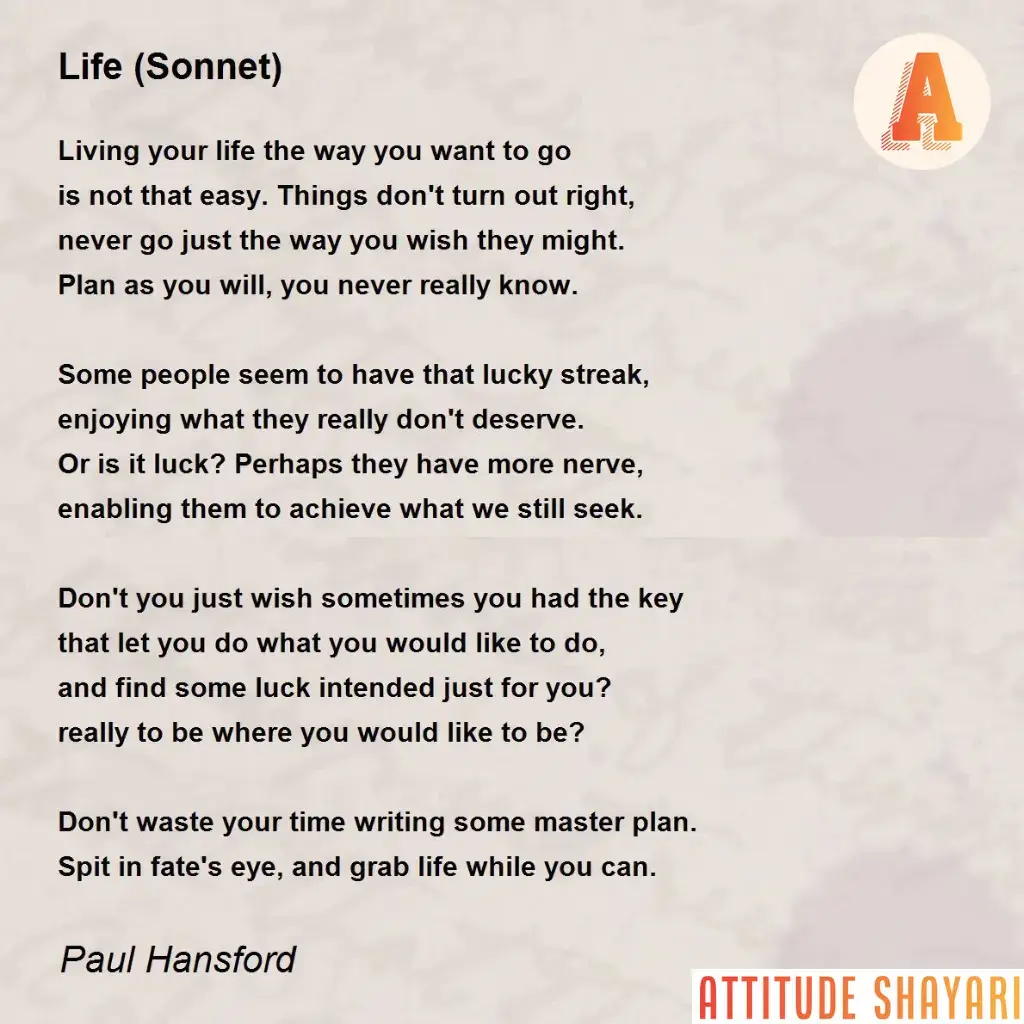
I love thee to the depth and breadth and height
My soul can reach, when feeling out of sight
For the ends of being and ideal grace.
I love thee to the level of every day’s
Most quiet need, by sun and candle-light.
I love thee freely, as men strive for right.
I love thee purely, as they turn from praise.
I love thee with the passion put to use
In my old griefs, and with my childhood’s faith.
I love thee with a love I seemed to lose
With my lost saints. I love thee with the breath,
Smiles, tears, of all my life; and, if God choose,
I shall but love thee better after death. [/quote]
Read More: The Raven Nevermore Poem by Edgar Allan Poe
Sonnet 75
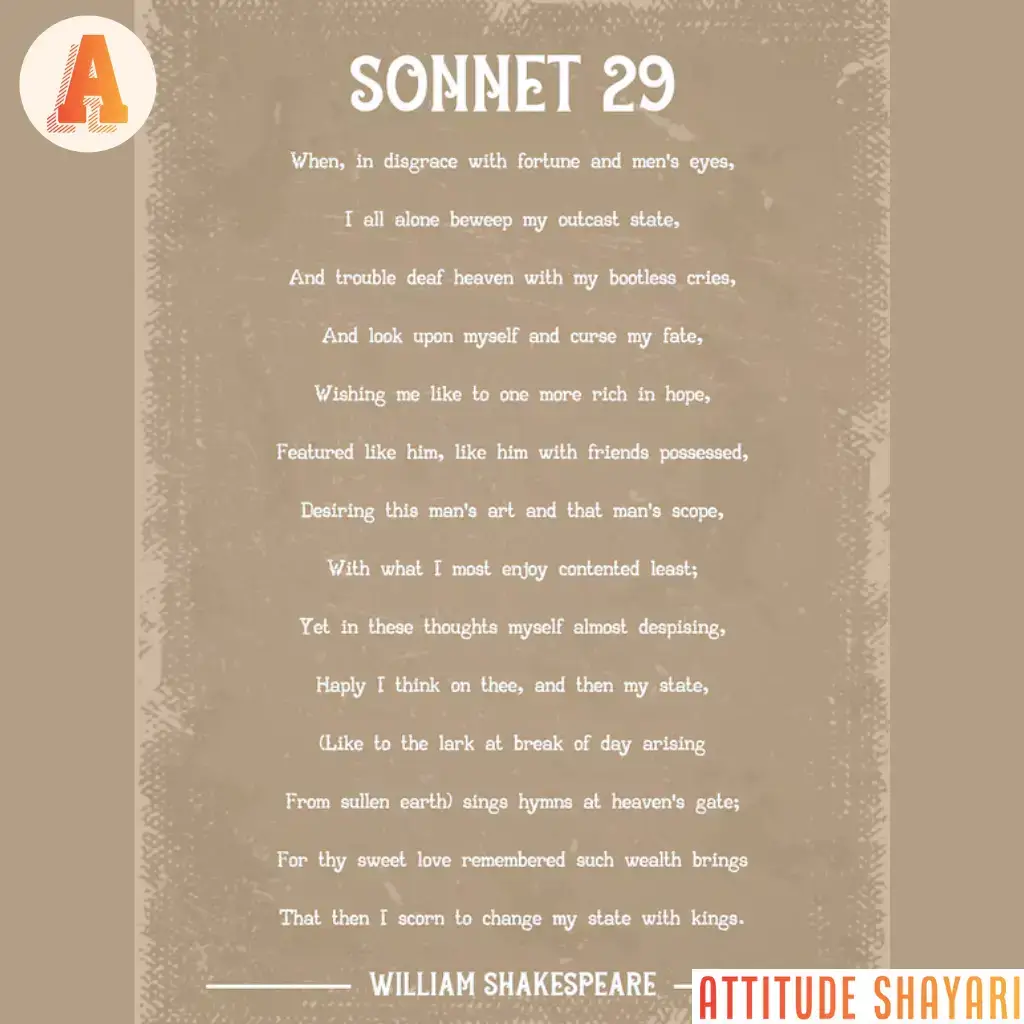
But came the waves and washed it away:
Again I write it with a second hand,
But came the tide, and made my pains his prey.
Vain man, said she, that doest in vain assay,
A mortal thing so to immortalize,
For I myself shall like to this decay,
And eek my name be wiped out likewise.
Not so, (quod I) let baser things devise
To die in dust, but you shall live by fame:
My verse, your virtues rare shall eternize,
And in the heavens write your glorious name.
Where whenas death shall all the world subdue,
Our love shall live, and later life renew. [/quote] [quote] That time of year thou mayst in me behold
When yellow leaves, or none, or few, do hang
Upon those boughs which shake against the cold,
Bare ruin’d choirs, where late the sweet birds sang.
In me thou see’st the twilight of such day
As after sunset fadeth in the west,
Which by and by black night doth take away,
Death’s second self, that seals up all in rest.
In me thou see’st the glowing of such fire
That on the ashes of his youth doth lie,
As the death-bed whereon it must expire,
Consum’d with that which it was nourish’d by.
This thou perceiv’st, which makes thy love more strong,
To love that well which thou must leave ere long. [/quote] [quote] If there be nothing new, but that which is
Hath been before, how are our brains beguil’d,
Which, labouring for invention, bear amiss
The second burthen of a former child!
O, that record could with a backward look,
Even of five hundred courses of the sun,
Show me your image in some antique book,
Since mind at first in character was done!
That I might see what the old world could say
To this composed wonder of your frame;
Whether we are mended, or whe’r better they,
Or whether revolution be the same.
O! sure I am, the wits of former days
To subjects worse have given admiring praise. [/quote] [quote] Not marble nor the gilded monuments
Of princes shall outlive this powerful rhyme,
But you shall shine more bright in these contents
Than unswept stone besmeared with sluttish time.
When wasteful war shall statues overturn,
And broils root out the work of masonry,
Nor Mars his sword nor war’s quick fire shall burn
The living record of your memory.
’Gainst death and all-oblivious enmity
Shall you pace forth; your praise shall still find room
Even in the eyes of all posterity
That wear this world out to the ending doom.
So, till the Judgement that yourself arise,
You live in this, and dwell in lovers’ eyes. [/quote]
Read More: Howl Poem by Allen Ginsberg
Sonnet 18 Poem
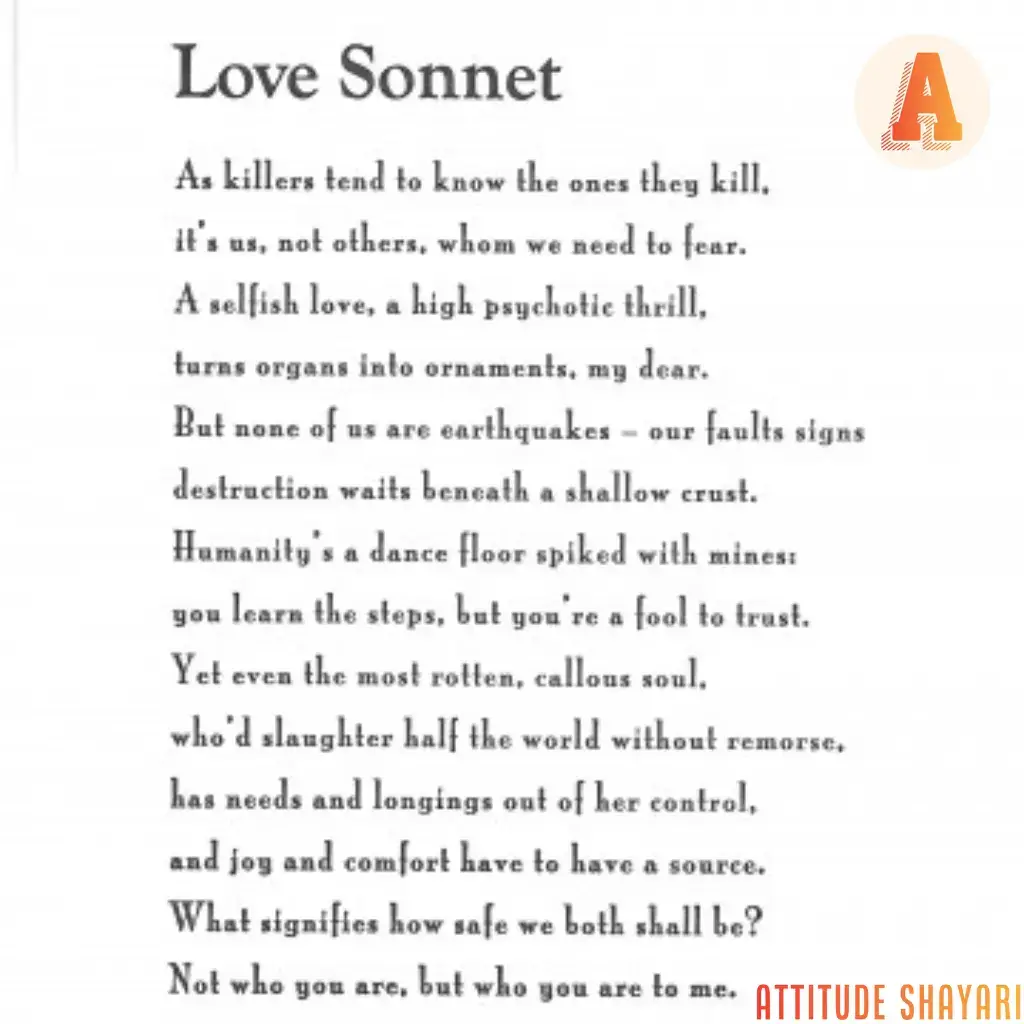
Thou art more lovely and more temperate:
Rough winds do shake the darling buds of May,
And summer’s lease hath all too short a date;
Sometime too hot the eye of heaven shines,
And often is his gold complexion dimm’d;
And every fair from fair sometime declines,
By chance or nature’s changing course untrimm’d;
But thy eternal summer shall not fade,
Nor lose possession of that fair thou ow’st;
Nor shall death brag thou wander’st in his shade,
When in eternal lines to time thou grow’st:
So long as men can breathe or eyes can see,
So long lives this, and this gives life to thee. [/quote]
Read More: Best Poems That Inspire Peace and Calm
Sonnet 116 Poem
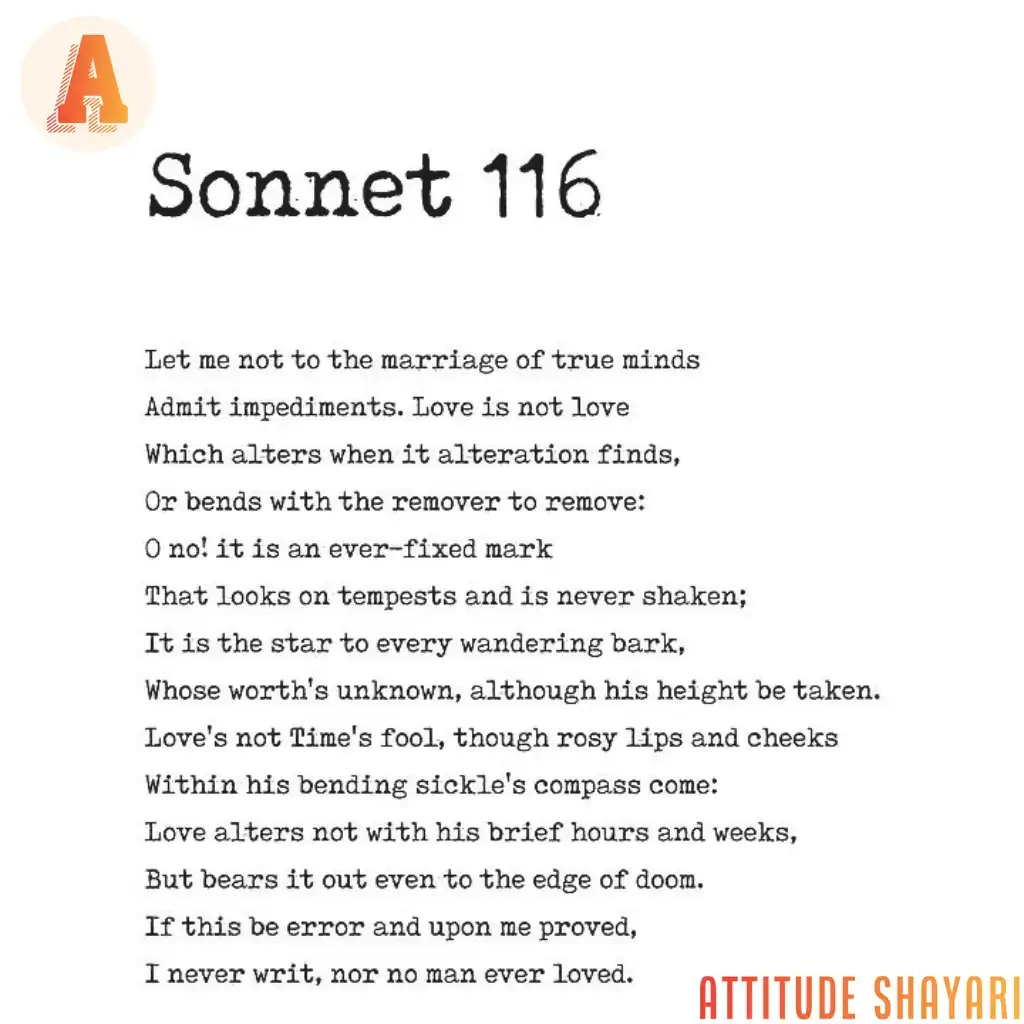
Admit impediments. Love is not love
Which alters when it alteration finds,
Or bends with the remover to remove:
O, no! it is an ever-fixed mark,
That looks on tempests and is never shaken;
It is the star to every wandering bark,
Whose worth’s unknown, although his height be taken.
Love’s not Time’s fool, though rosy lips and cheeks
Within his bending sickle’s compass come;
Love alters not with his brief hours and weeks,
But bears it out even to the edge of doom.
If this be error, and upon me prov’d,
I never writ, nor no man ever lov’d. [/quote]
Read More: She Walks In Beauty by George Gordon Byron
Sonnet 29 Shakespeare Poem
[quote] When in disgrace with fortune and men’s eyes,I all alone beweep my outcast state,
And trouble deaf heaven with my bootless cries,
And look upon myself and curse my fate,
wishing me like to one more rich in hope,
Featured like him, like him with friends possessed,
Desiring this man’s art, and that man’s scope,
With what I most enjoy contented least;
Yet in these thoughts myself almost despising,
Haply I think on thee—and then my state,
Like to the lark at break of day arising
From sullen earth sings hymns at heaven’s gate;
For thy sweet love remembered such wealth brings,
That then I scorn to change my state with kings. [/quote]
Read More: A Mother’s Love Poem by Helen Steiner Rice
Poem Sonnet 130
[quote] My mistress’ eyes are nothing like the sun;Coral is far more red than her lips’ red;
If snow be white, why then her breasts are dun;
If hairs be wires, black wires grow on her head.
I have seen roses damasked, red and white,
But no such roses see I in her cheeks;
And in some perfumes is there more delight
Than in the breath that from my mistress reeks.
I love to hear her speak, yet well I know
That music hath a far more pleasing sound;
I grant I never saw a goddess go;
My mistress when she walks treads on the ground.
And yet, by heaven, I think my love as rare
As any she belied with false compare. [/quote]
Read More: Best Cute & Romantic Short Love Poems for Her
Free Verse Poem
[quote] In the desertI saw a creature, naked, bestial,
Who, squatting upon the ground,
Held his heart in his hands,
And ate of it.
I said, “Is it good, friend?”
“It is bitter—bitter,” he answered;
But I like it
Because it is bitter,
And because it is my heart. [/quote] [quote] Are you alive?
I touch you.
You quiver like a sea-fish.
I cover you with my net.
What are you—banded one? [/quote] [quote] Miss Nancy Ellicott
Strode across the hills and broke them,
Rode across the hills and broke them—
The barren New England hills—
Riding to hounds
Over the cow-pasture.
Miss Nancy Ellicott smoked
And danced all the modern dances;
And her aunts were not quite sure how they felt about it,
But they knew that it was modern.
Upon the glazen shelves kept watch
Matthew and Waldo, guardians of the faith,
The army of unalterable law. [/quote] [quote] I, too, sing America.
I am the darker brother.
They send me to eat in the kitchen
When company comes,
But I laugh,
And eat well,
And grow strong.
Tomorrow,
I’ll be at the table
When company comes.
Nobody’ll dare
Say to me,
“Eat in the kitchen,”
Then.
Besides,
They’ll see how beautiful I am
And be ashamed—
I, too, am America. [/quote] [quote] Is the total black, being spoken
From the earth’s inside.
There are many kinds of open.
How a diamond comes into a knot of flame
How a sound comes into a word, coloured
By who pays what for speaking.
Some words are open
Like a diamond on glass windows
Singing out within the crash of passing sun
Then there are words like stapled wagers
In a perforated book—buy and sign and tear apart—
And come whatever wills all chances. [/quote]
Read More: And Still I Rise Poem by Maya Angelou | Audre Lorde Poems
